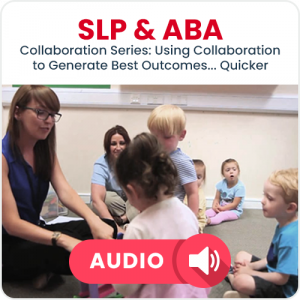Intensive Intervention Team
You may have already heard about the Intensive Behavior Intervention (IBI) program. It is a vastly structured program that is based upon the principles of Applied Behavior Analysis (ABA). IBI is given in various settings such as home, school, and community. It is designed to provide intensive one-on-one intervention for children with autism spectrum disorder (ASD or autism) ages 2–15. Early intervention is recommended and is given 35–40 hours/week and would approximately last for two years by a team of aides that are supervised by a psychologist. Team members, usually three, are chosen according to the plans and goals that are appropriate to your child’s developmental level.
The team may consist of the following:
Therapist/Educator/Instructor: The IBI therapist or educator is the one responsible for the intensive one-on-one sessions with your child. The educator should be a graduate of a special education degree to be able to handle and teach the different methods pertaining to the particular therapy your child should receive. Previous experience in providing IBI would be of great benefit. The therapist or educator is responsible for maintaining a daily record of your child’s progress. Also, it is important that both you and your child develop a good, open relationship with the therapist or educator.
Senior therapist: The senior therapist is the one accountable for supervising the instructional therapists teaching your child. They also conduct one-on-one sessions with your child, if needed. The senior therapist provides the training needed by family members that are related to behavioral and home interventions. A senior therapist should have or is presently attaining, a master’s level graduate degree in special education or Psychology or any related field. Clinical experience should be around six months to a year. The senior therapist, together with the therapist/educator, will assist you when your child goes through a transition — from IBI at home to attending a normal school.
Parents: It is very important that parents participate as integral members of the intervention team. It is suggested that the parents of the child with autism undergo training on behavioral methods, in order for them to know how to therapeutically and appropriately interact with their child, as well as to be able to continue what the therapist has started as soon as his therapy sessions end.
Clinical director: The clinical director is responsible for overseeing, monitoring, and evaluating the program. He must have a doctoral degree in Psychology or any related course.
References:
http://www.ceatni.net/page/7/early-intensive-intervention
http://www.researchautism.net/autism_treatments_therapies_intervention.ikml?print&ra=13&infolevel=4
Copyright © by Special Learning Inc. All right reserved.
No part of this article may be reproduced in any manner whatsoever without written permission except in the case of brief quotations embodied in critical articles and reviews. For information, contact Special Learning Inc., at: contact@special-learning.com








